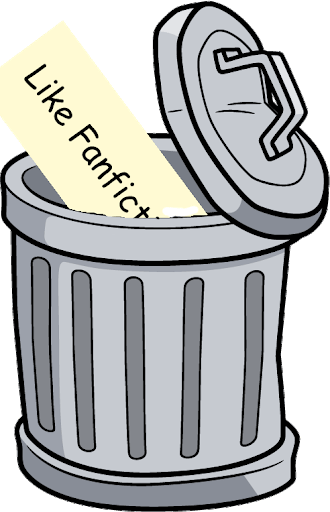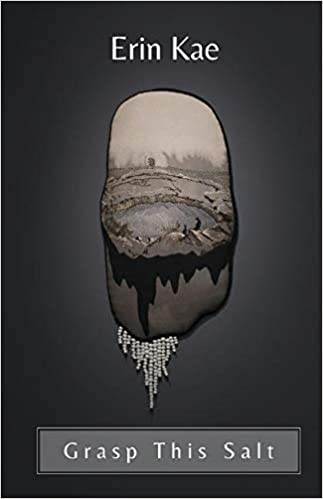Posted by Lara Mangino, CNF reader for 8.2
 Along with being a creative nonfiction reader for Gandy Dancer, I also serve as the editor-in-chief for MiNT Magazine, another Geneseo literary journal, and getting to work on both simultaneously has given me a unique viewpoint. Coming to Gandy Dancer with a background in editing has allowed me to offer my perspective on a number of issues; for example, I recall a discussion in class on themed issues. Because MiNT utilizes themes—Roots, Ashes, and Tides have been our most recent—I prefer them and was able to elaborate on their advantages and disadvantages. I bought up how we often feel pressured to choose submissions that fit the theme, although we never require contributors to adhere to it. However, having themed issues also allows us to tell a kind of story with our magazine. In Ashes, we organized the pieces according to tone and told a story of life, death, and rebirth. Thus, my background in MiNT informed how I approached Gandy.
Along with being a creative nonfiction reader for Gandy Dancer, I also serve as the editor-in-chief for MiNT Magazine, another Geneseo literary journal, and getting to work on both simultaneously has given me a unique viewpoint. Coming to Gandy Dancer with a background in editing has allowed me to offer my perspective on a number of issues; for example, I recall a discussion in class on themed issues. Because MiNT utilizes themes—Roots, Ashes, and Tides have been our most recent—I prefer them and was able to elaborate on their advantages and disadvantages. I bought up how we often feel pressured to choose submissions that fit the theme, although we never require contributors to adhere to it. However, having themed issues also allows us to tell a kind of story with our magazine. In Ashes, we organized the pieces according to tone and told a story of life, death, and rebirth. Thus, my background in MiNT informed how I approached Gandy.
Monthly Archives: April 2020
A Foot in Each Camp: What It’s Like to Work on Two Literary Journals at Once
Comments Off on A Foot in Each Camp: What It’s Like to Work on Two Literary Journals at Once
Filed under Blog
Reads Like Fanfiction – My Least Favorite Criticism
Posted by Laura Gikas, Fiction Reader for 8.2
 We’ve all heard it before; some of us have even been at the receiving end (I certainly have). It’s a devastating blow—the getting-socked-by-a-300-pound-body-builder equivalent of literary criticism, and frankly, its usage needs to stop. I’m not even saying this because of its major assault to my self-confidence. I’m saying this because it’s just not good criticism.
We’ve all heard it before; some of us have even been at the receiving end (I certainly have). It’s a devastating blow—the getting-socked-by-a-300-pound-body-builder equivalent of literary criticism, and frankly, its usage needs to stop. I’m not even saying this because of its major assault to my self-confidence. I’m saying this because it’s just not good criticism.
First, I’ll admit that I occasionally read fanfiction and just as occasionally will write it myself, and with my limited experience in the genre, I can confidently say that fanfiction is as diverse as the types of gummies in the world—some of them are pure art, some of them are just crap, and most of them are somewhere in between. Of course, we already know when the good ol’ “like fanfiction” destroyer comes out, it’s never meant to imply anything good. It’s safe to assume if anyone says your writing reads like fanfiction they aren’t calling it the Haribo Fizzy Colas of literature or pure art. Nah, maybe the generic Sugarless Gummy Bears of literature (although you’d better hope it’s not that bad).
Comments Off on Reads Like Fanfiction – My Least Favorite Criticism
Filed under Blog
Our Land? The Cultural Appropriation of “American Dirt”
Posted by Troy Seefried, Fiction Editor for 8.2

If you’ve heard about American Dirt, then you’ve heard about the controversy surrounding the story. Jeanine Cummins is a white-identified author who tells the story of a Mexican woman who escapes Mexico and attempts to immigrate to the United States for the safety of her family. While an emotionally compelling book, many are arguing that she doesn’t have the cultural license to tell this story.
The conversation taking place in today’s literary world is based around the question: Can we write outside of ourselves? Considering the story itself, a first-person narrative of a Mexican woman fleeing her home country, some, including myself (a member of the Mexican-American community), will say that this is a story reserved for the LatinX or Mexican literary community. Not to say it can only be told for them, but it should be written by them. In my opinion, this is absolutely a story that should be shared with the masses. It’s especially important to learn about the lives of undocumented immigrants at this time . It’s important that we learn about them, hear from them, and then as a society strive to better the system and find a solution. But is Jeanine Cummins, a white-identified author allowed to tell this story?
Comments Off on Our Land? The Cultural Appropriation of “American Dirt”
Filed under Blog
Inspiration from SUNY Geneseo Alumna, Erin Kae
Posted by Lyndsay Tudman, Poetry Editor for 8.2
 In early March of 2020, SUNY Geneseo alumna Erin Kae visited to hold the school’s first literary forum of the semester. There, she read Grasp This Salt, her chapbook that explores the story of Susan Smith, the woman who drowned her two young sons in 1995. During the literary forum, Kae discussed her inspiration for the chapbook. The event happened when Kae was only a few years old, which has allowed her to take an unbiased approach as she learned more about Susan Smith, the horrific event, and the incessant news coverage which followed.
In early March of 2020, SUNY Geneseo alumna Erin Kae visited to hold the school’s first literary forum of the semester. There, she read Grasp This Salt, her chapbook that explores the story of Susan Smith, the woman who drowned her two young sons in 1995. During the literary forum, Kae discussed her inspiration for the chapbook. The event happened when Kae was only a few years old, which has allowed her to take an unbiased approach as she learned more about Susan Smith, the horrific event, and the incessant news coverage which followed.
As a current Geneseo student, I found it really interesting to hear Kae speak not only about her experience in writing a chapbook, but also about her life as a Geneseo student. When Kae had visited my poetry workshop the morning before the literary forum, she talked to us students about how some of her published poems started in classes like ours. As a creative writing major at SUNY Geneseo, it was really inspiring to see a published author talk about the same classes we were in and the professors we study under who helped her get to where she is now.
Comments Off on Inspiration from SUNY Geneseo Alumna, Erin Kae
Filed under Blog
Writing Outside Your Genre
Posted by Jamie Henshaw, CNF Reader for 8.2
 Fiction is my jam. There’s usually a story, character, or idea occupying the synapses of my brain like the roots of a blossoming flower. Or a sturdy tree. …and sometimes an errant weed, to be honest. While this might make it sound like I have ideas just pouring out of me – and that’s often true – a lot of it is rubbish.
Fiction is my jam. There’s usually a story, character, or idea occupying the synapses of my brain like the roots of a blossoming flower. Or a sturdy tree. …and sometimes an errant weed, to be honest. While this might make it sound like I have ideas just pouring out of me – and that’s often true – a lot of it is rubbish.
To add another metaphor to this discussion, I’ve learned that you have to be good at gold panning to be a good writer. You have to sift through a lot of rock to find the little nuggets of gold. You have to remember that gold is just a valuable kind of rock. You have to understand that good writing takes time and effort; the best writing requires exponential levels of time and effort. In fact, Malcolm Gladwell, Canadian author and journalist, says in Outliers: The Story of Success that it takes 10,000 hours of deliberate practice to be an expert. Let’s see… that’s 416 days of really, really trying.
That’s not something I’ve achieved, personally.
Not even close.
Comments Off on Writing Outside Your Genre
Filed under Blog
